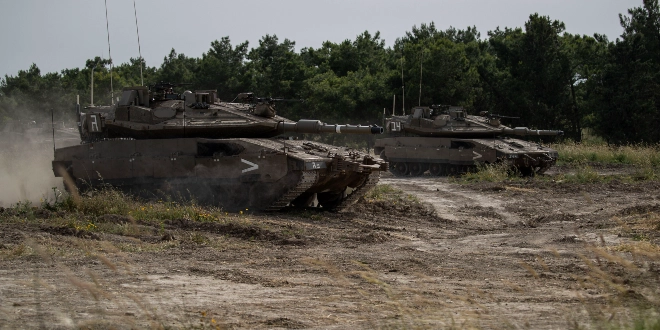The possibility of a full-scale war between Israel and Hezbollah in Lebanon is a source of fear for people on both sides of the border. This apprehension is heightened by the ongoing conflict between Israel and Gaza, which some believe could lead to an inevitable confrontation with Hezbollah.
If such a conflict were to occur, it could be the most devastating war either side has faced.
Reflecting on the 2006 conflict, which broke out after Hezbollah captured two Israeli soldiers, the war resulted in considerable destruction in south Lebanon and Beirut’s southern suburbs, with Hezbollah launching numerous rockets into northern Israel. The war claimed the lives of about 1,200 Lebanese, mostly civilians, and 160 Israelis, mainly soldiers.
Despite the presence of U.N. peacekeepers, tensions persist along the border, with Hezbollah still active in the area and Israel accused of airspace violations and occupying Lebanese land.
The likelihood of war is a subject of global concern, with U.N. Secretary-General Antonio Guterres warning of its disastrous potential. The recent exchanges of fire between Hezbollah and Israel, along with targeted killings by Israel in Lebanon, have escalated tensions. The death toll so far includes over 200 people, mostly Hezbollah fighters and some civilians, in Lebanon, and 18 in Israel, with tens of thousands displaced on both sides.
Israeli leaders have signaled that war could become inevitable if Hezbollah does not withdraw from the border. Hezbollah’s leader, Sayyed Hassan Nasrallah, has warned of an unlimited conflict if Israel initiates war, and the group has rejected a U.S. proposal to move its forces away from the border.
Despite preparations for conflict by both sides, neither Hezbollah nor Israel seems eager for war. However, as Andrea Teneti, spokesman for the U.N. peacekeeping mission in south Lebanon, noted, a miscalculation could trigger a much larger and uncontrollable conflict.
Both Hezbollah and the Israeli military are more capable than they were in 2006, yet the countries are also more vulnerable. Lebanon’s economic crisis has weakened its public institutions, and the country is ill-prepared for a large-scale conflict. The U.N. refugee agency and other aid groups have limited resources to support a massive number of displaced people in the event of war.
In Israel, the economic and social strain from the Gaza war is significant, and a conflict with Lebanon would further escalate costs. Public opinion in Israel is divided, with some supporting war as a last resort for border security, while in Lebanon, opinions about Hezbollah’s role are mixed.
A war would likely involve multiple fronts, potentially drawing in Iranian proxies from the region and possibly Iran itself. It could also involve the U.S., Israel’s ally, which has already increased its military presence in the region.
Hezbollah’s arsenal of rockets and missiles poses a significant threat to Israel, while Israel’s air defenses, including the Iron Dome, provide some protection. However, Israeli residential areas and critical infrastructure could still be vulnerable. In Lebanon, airstrikes could cause extensive damage, and Netanyahu has threatened severe consequences.
Lebanon’s air defenses are limited, and the role of the Lebanese army in a potential conflict remains uncertain. In 2006, the army participated in a limited capacity, but its current response in a new conflict is unclear.


